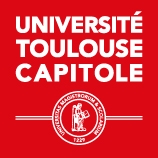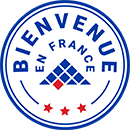- About us
- Presentation
- Organisation
- Partnerships
- Portraits
- Opening Ceremony
- Course offer
- Presentation
- Organisation
- Partnerships
- Portraits
- Opening Ceremony
You are here : Home > About us > Presentation
ESL Toulouse origins
The European Institute of Law was created in November 2010 on the initiative of Professor Sylvaine Peruzzetto, Vice-President of the Department of European and International Relations of the University of Toulouse Capitole. It was attached to the Department under the direction of Claudine Chambert. The international policy of the University's Faculty of Law and Political Sciences had laid the foundations for training lawyers for Europe; the creation of this institute, dedicated to courses with an international and European approach (double degrees, degrees taught in a foreign language, Bachelor's degrees in French Law and foreign law), gave substance to this policy.
In May 2014, under the impetus of the President of the University of Toulouse Capitole, Bruno Sire, and Professor Peruzzetto, who was entrusted with its management, the European School of Law succeeded the Institute, marking a new stage in this policy of opening up to Europe and the international arena. It was inaugurated at the French Ministry of Foreign Affairs at the Quai d'Orsay, under the patronage and in the presence of Laurent Fabius, the French Minister of Foreign Affairs and International Development, and Geneviève Fioraso, the French Minister of State for Higher Education and Research.
They were succeeded in April 2018 by Marie Delord as Secretary General, and in June 2018 by Professor Lukas Rass-Masson as Director. Since then, Loïc Demester and Daniela Ferreira have both held the post of Secretary General, and Professor Zoé Jacquemin was elected Director of the School in June 2023.
The five innovation plans behind the European School of Law Toulouse
The European dimension
The construction of law and its teaching have traditionally been based on national approaches. European integration has added a specific body of international law that everyone has incorporated into their teaching and practice. However, the European dimension of legal education has remained singularly absent. The creation of ESL Toulouse fills this gap.
The creation of ESL Toulouse is the logical consequence of the creation of the European Higher Education and Research Area following the Bologna Accord (1999). Since then, Europe has implicitly invited us to develop European curricula that go beyond the simple harmonisation of diplomas and that are not limited to the short-term mobility of students. At the ESL, the training of lawyers is based on the building of original training programmes and on the cooperation of their teachers in a network of the best law faculties in Europe and beyond.
ESL has an axiom: cultural and legal diversity as elements of training; and a vector for the building of knowledge: student mobility.
The school will train lawyers for Europe:
- who will be capable of knowing, understanding, comparing, articulating and shaping national and European rules
- who will learn the law through mobility
- who will promote the necessary cooperation between lawyers.
- for requests from outside Europe;
- for outward-looking Europeans;
- for applications within Europe.
The professional dimension
The ESL is based on the premise that law is neither an ideology nor a system, and that its professional dimension is essential to its conception, application and teaching.
The importance of the professional dimension is underlined by the participation of various legal professionals in the School’s Strategic Steering Committee (judges, international lawyers, notaries, corporate lawyers, etc.).
The School's teaching is based on "living law". It is based on case studies that reflect the complexity of reality, the complexity of the multiplicity of norms and the complexity of the multiplicity of theories.
The course is designed to enable students to master the elements of the various legal chains: from a contract to its execution, from a dispute to the enforcement of the decision, from mediation to the maintenance of commercial and professional relations, etc.
The cultural project
- the link between law and language, both for dual courses and for double degrees;
- the link between law in Europe and European culture, by situating law within the history of Europe, its great movements of thought and its geopolitical and geo-economic approach;
- the link between law and the construction of European society in its economic, political and social dimensions.
The research dimension
The importance of the research dimension is underlined by the presence of leading academics in the School’s Strategic Steering Committee.
In 2014-2015, ESL-Toulouse created a doctoral seminar in partnership with the universities in its network. The co-supervision of doctoral theses is encouraged and, under certain conditions, the school can award European doctorates.
The network can also act as a facilitator in the creation of European legal research projects. The presence of the Strategic Steering Committee makes it possible to propose research topics relating to the problems faced by legal, economic, social and administrative actors in Europe and throughout the world.
The educational project
Since the law is seen here as a complex set of texts to which the European project must give meaning, rather than as a system or the product of theories, the School’s teaching and learning methods are largely innovative compared with what is usually practised in a strictly national context. They are based on mobility, the experience of diversity and the widespread introduction of digital tools.
Learning by travelling: in this way, students are reviving a tradition that goes back to the practices of universities in the Middle Ages, which already included the mobility of students and teachers; in order to graduate from the school, students must have spent at least one year abroad.
The experience of diversity by learning the legal solutions developed in each country, on the one hand, and the languages of law, on the other. With regard to the latter, legal education is provided in the original language, which guarantees a solid understanding of concepts and doctrine. But the School also uses English as a language of communication and the teaching of international law, which considerably increases the attractiveness of the school for non-French speakers.
Learning law with digital tools is particularly suited to our teaching project. National legal databases coexist with European and international databases, so that teaching must lead students to know how to select and articulate data from numerous documentary databases in order to construct case-by-case solutions in a multinational dimension.Please refer to cookies policy


